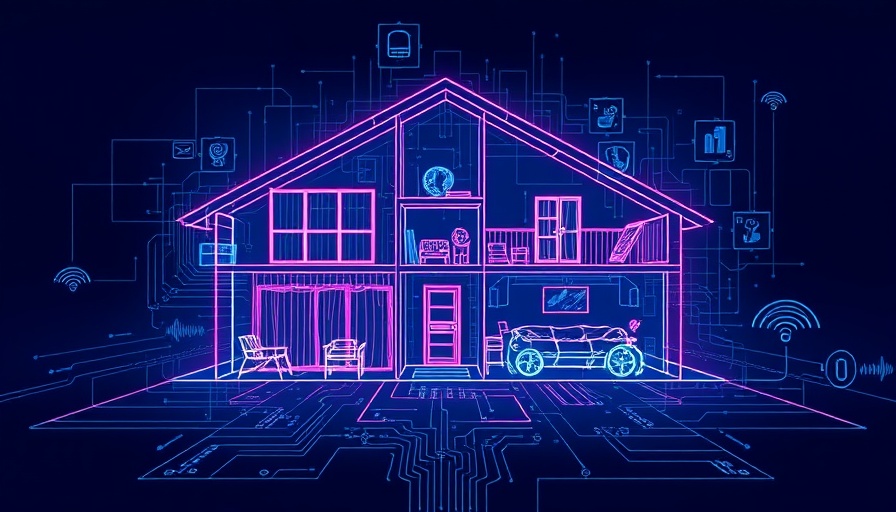
The AI Sensor Market: A Snapshot of Growth
The AI sensor market is on a meteoric rise, with projections estimating a leap from USD 2.50 billion in 2024 to an astonishing USD 64.91 billion by 2032. This translates to a staggering compound annual growth rate (CAGR) of 43.6%. Several pivotal factors are driving this growth, including the increasing role of AI sensors in automation and the burgeoning use of modern technologies like the Internet of Things (IoT). Such advancements allow for real-time data analysis, enhancing the efficiency of devices and enabling intelligent decision-making across various sectors.
Why AI Sensors Are Essential in Modern Technology
As industries evolve, the demand for smarter and more efficient devices escalates. AI sensors are at the forefront of this revolution, enabling unprecedented levels of automation, particularly within the automotive sector. The integration of AI in these sensors allows for real-time data collection, which is crucial for applications ranging from autonomous vehicles to industrial robots. With these advancements, AI sensors are becoming indispensable for manufacturers and service providers alike, pushing the boundaries of what technology can achieve.
Leading Players and Innovations in the Market
The landscape of the AI sensor market is dominated by key players such as Amazon, Sony, Google, and Microsoft. Recent developments like the collaboration between Sony Semiconductor Solutions Corporation and Raspberry Pi Ltd in launching the Raspberry Pi AI Camera exemplify how companies are innovating to meet market demands. This camera, designed for multiple single-board computers, is expected to accelerate the development of AI solutions that can process visual data, showcasing the blend of simplicity and sophistication in technology.
The Future of AI Sensors: Insights and Opportunities
The future of AI sensors appears promising, particularly with advancements in technologies like deep learning and machine vision. Collaborations such as the one between Lumotive and Cron AI are expected to revolutionize 3D sensor technology. Their solid-state LiDAR system, enhanced by deep learning capabilities, represents a significant leap forward, tackling existing limitations and opening up new avenues for applications in diverse fields such as healthcare and finance.
What This Means for Consumers and Industries
For consumers, the rise of AI sensors translates into smarter devices that can optimize their daily lives. From healthcare devices that monitor vital signs to financial systems that predict trends, the impact of AI sensors will be felt across multiple sectors. Businesses that adopt these technologies stand to enhance their operational efficiency and decision-making abilities, providing them with a competitive edge. Additionally, as more companies invest in AI capabilities, consumers can expect a broader array of innovative solutions tailored to their needs.
Conclusion: Why Staying Informed is Crucial
As the AI sensor market continues to grow, being informed about the latest trends and technologies will be vital for both industry professionals and consumers alike. Understanding the implications of these advancements can help in making informed decisions, whether it’s about investing in new technology or predicting future job market trends. Stay updated and engage with the evolving world of AI to harness its full potential!
For those who love AI, now is the time to explore the many facets of this technology and how it shapes our world. Don't hesitate to delve deeper into the developments mentioned and keep an eye on the exciting innovations ahead.
 Add Row
Add Row  Add
Add 




 Add Row
Add Row  Add
Add 

Write A Comment